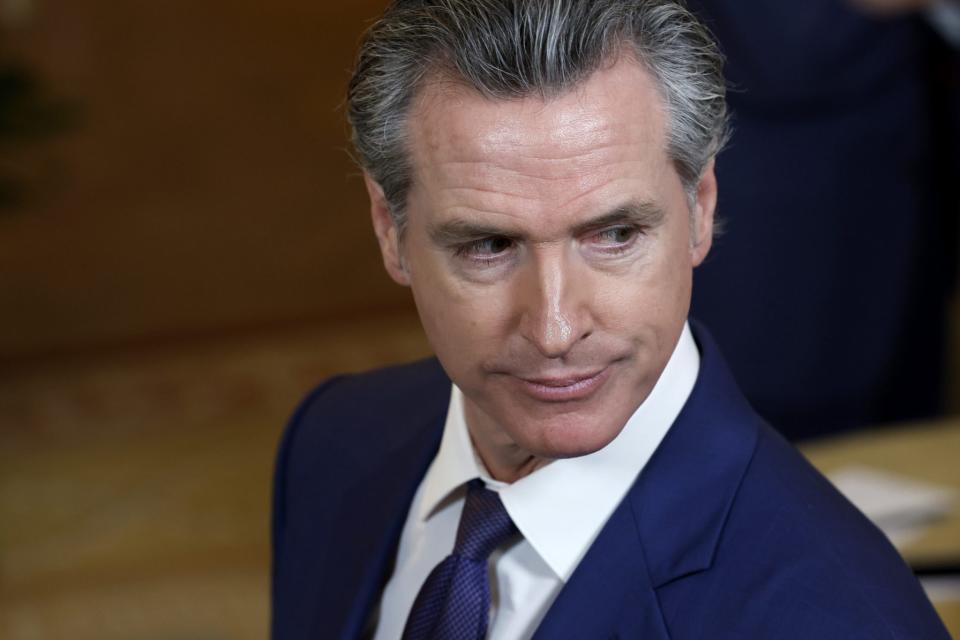Panera franchise billionaire will comply with California minimum wage law—after unusual bread-baking exemption prompts ‘absurd’ outcry from Gavin Newsom’s office

A week ago, it looked like California restaurant billionaire Greg Flynn would be one of the few to avoid the state's $20 fast-food minimum-wage law. Now, Flynn says he'll raise pay in his 24 Panera franchises to $20 per hour after all—and that this is all a giant misunderstanding.
Flynn, a longtime major donor to Democratic Gov. Gavin Newsom, was called out by Bloomberg on Feb. 28 when the outlet reported that his Panera franchises would benefit from a “bread exemption” that would allow some establishments to maintain wages below the new minimum wage if an establishment “produces” and sells bread on premises. People familiar with the matter told Bloomberg that Newsom had personally pushed for the “unusual” provision.
Following a public outcry, Flynn said in a widely reported Tuesday statement that he would raise the wages of his California workers when it takes effect next month. In a statement to Sacramento-based TV station KCRA-TV, Flynn said he had never asked for special treatment and was surprised the “bread exemption” was even included in the final law. Without denying that he’s a longtime Newsom donor, he added that “although we attended the same high school, I never met him there and in fact didn’t meet him until decades later.”
For its part, the governor’s office has called the Bloomberg reporting “absurd,” although it did not deny that the bread exemption did, in fact, exist in the final version of the law.
Starting April 1, the law will raise base salaries at fast-food restaurants with more than 60 locations nationwide to $20 an hour from $16 an hour. A special fast-food council made up of employees and company representatives can also raise the minimum wage by 3.5% per year depending on inflation. The legislation has been hailed by labor advocates but strongly opposed by companies that say the costs for California-based franchises will increase substantially due to the law.
Flynn said in the Tuesday statement that the decision to raise wages was made “to attract and retain the best team members to deliver the restaurant experience our guests know and love.” But in a previous statement to Sacramento-based TV station KCRA-TV, Flynn implied that the company would be pressured to raise wages even if it was exempt from the minimum wage law, because their competitors would be forced to raise them.
“As it applies to all of our peer restaurants in the fast-casual segment, we will almost certainly have to offer market-value wages in order to attract and retain employees," Flynn said in the statement.
Flynn’s company Flynn Group did not immediately respond to Fortune’s requests for comment.
Flynn said in the statement to KCRA-TV that he suggested the minimum-wage law be changed to “to exclude fast-casual restaurants,” like Panera Bread, and limit its effects to “true fast-food restaurants.” But he maintains he didn’t ask for a carve-out for his Panera franchises in particular. (He did not say whether he was planning to claim an exemption under the bread clause, but that seems to be a moot point now.)
Still, the exemption for bread producers was so important to Newsom that the bill’s cosponsor, the Service Employees International Union (SEIU), approved of it to get his support, Bloomberg reported, citing a person with knowledge of the negotiations.
After the Bloomberg reporting and public outcry, lawyers for Newsom’s office took another look at the law and clarified that Panera would not be exempt after all because their bread isn’t fully produced in-house, said Alex Stack, a spokesperson in the governor’s office, in a statement to Fortune.
In a statement, Tia Orr, the executive director of SEIU California, supported the legal review conducted by the governor’s office, saying that “there was never an intent to exclude one company, but instead to provide clarity on what constitutes a fast-food establishment.” Stack denied that there was any collaboration between the governor and Flynn.
For his part, Flynn said the “bread exemption” was pretty much useless to his company, anyway.
“Such a narrow exemption has very little practical value,” he said in the KCRA-TV statement.
This story was originally featured on Fortune.com

 Yahoo Finance
Yahoo Finance 